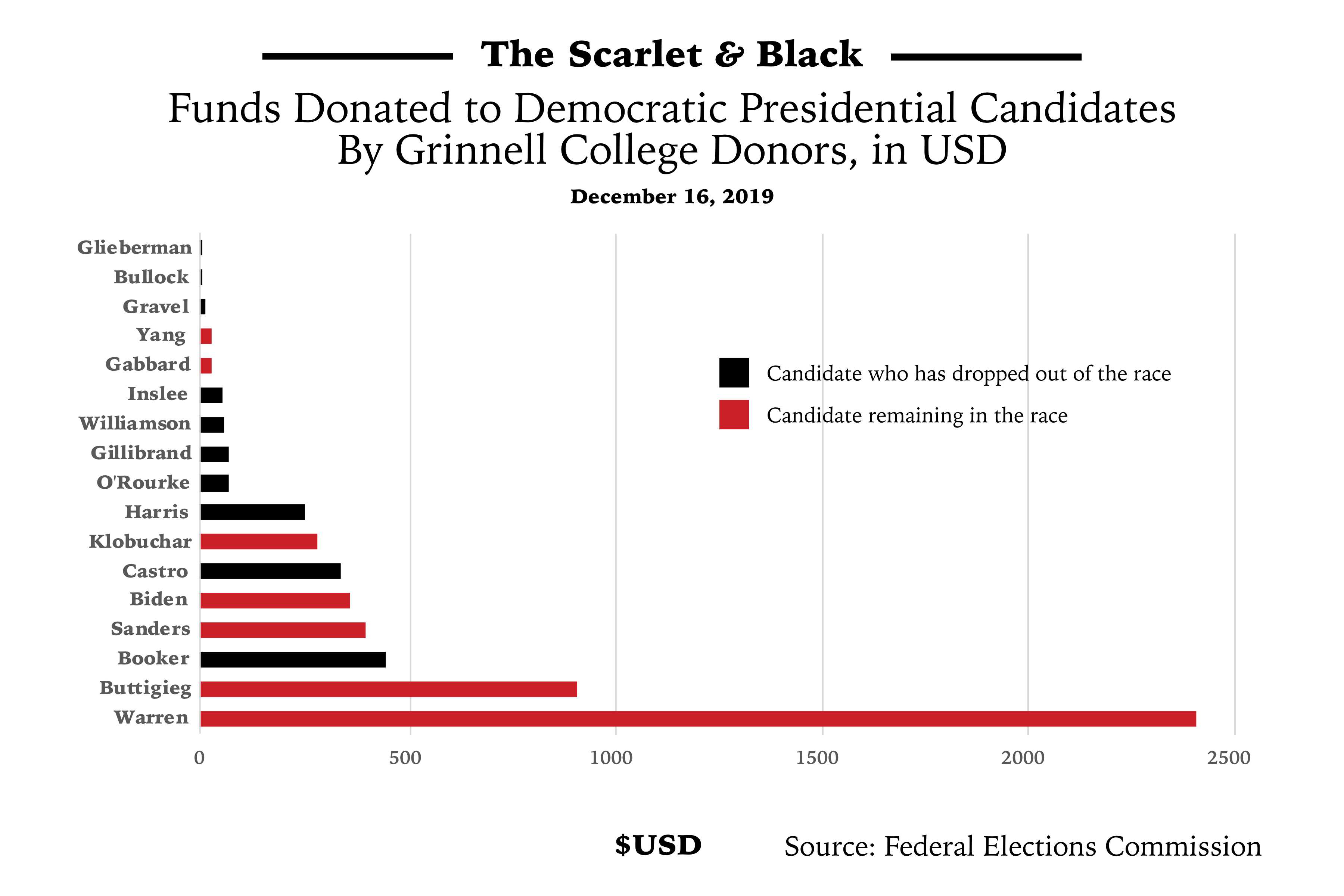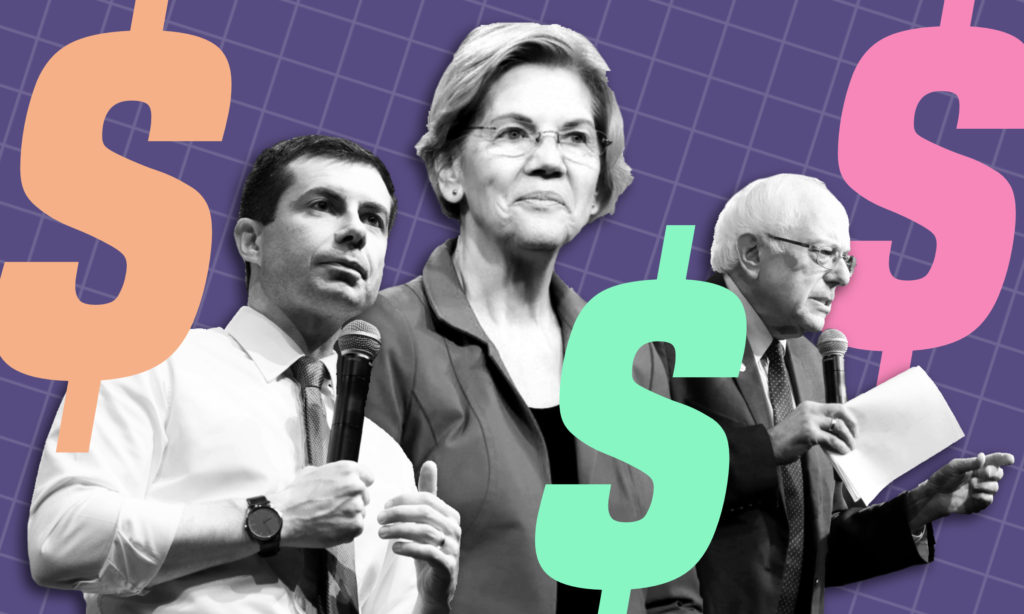Full time employees and student workers at Grinnell College have spent $5,792.77 on contributions to candidates for the 2020 presidential election as of the last period filing in December, with Elizabeth Warren leading her caucus competitors in donations, according to the Center for Responsive Politics (CRP), a nonprofit group that compiles and organizes publicly-accessible data from the Federal Election Commission (FEC).
In accordance with government policy, donors to political groups and campaigns must disclose their employer and occupation. This data is made available to the public and allows The Scarlet & Black to analyze the donations of people affiliated with Grinnell College. This list is by no means comprehensive, given that some donors may not have listed Grinnell as their employer. Data were cross-referenced between the original FEC and CRP reports to ensure that results are accurate. The overall average donation amount for College employees was $27.96.
Senator Elizabeth Warren of Massachusetts has garnered the most funds from College employees so far, at $2420.57. Her average contribution amount was $36.67. Plagued by deflating poll numbers, Warren’s first-place finish in Grinnell donations reflects both her strength among the College’s progressives and her commitment to winning Grinnell come caucus night. Warren is well-organized in the area: 850 people turned out to a rally last November, and the campaign opened an office in downtown Grinnell last year. Warren’s strong showing in the race for Grinnell donations may hint at tighter competition between Warren and projected front-runner Sanders in Grinnell’s Ward 1 as they vie for left-wing votes.
Former Mayor Pete Buttigieg ranked second of the candidates still in the running for the Democratic nomination, nabbing $918.16, or 16 percent of total funds contributed by Grinnell College donors. Donations to Buttigieg averaged $22.39. The former mayor drew a crowd of 500 voters when he visited Grinnell back in December, but he was also dogged by climate protesters affiliated with the Sunrise Movement.
Senator Bernie Sanders of Vermont had a middle-of-the-pack showing despite his increasing support from voters in recent weeks and Grinnell College’s progressive electorate. He received 6.9 percent of the total, or $403.84. In keeping with his campaign’s emphasis on small donations and grassroots support, Sanders’s average donation was $14.95, placing him just behind Buttigieg and Warren.
Former Vice President Joe Biden, who has been a consistent leader in the polls for the entirety of the race, has received just $365 from Grinnell donors, or 6 percent of all money donated. Just two people affiliated with Grinnell College donated to Joe Biden. The trend follows for fellow moderate Amy Klobuchar, who raised $285 from just two people at Grinnell.
Contributions to the race’s fringe candidates did not upset their outlier status. Businessman Andrew Yang, who told The S&B that he was “third among young people” during a campaign stop this month, has raised a scant $30 from two donors affiliated with Grinnell College. Tulsi Gabbard, a progressive who has yet to catch fire in the polls, also only received $30 in donations. Tom Steyer has not received a single donation.

The majority of donations were made through ActBlue, a fundraising platform for Democratic and progressive candidates and political groups.
Professor Barbara Trish, who taught a Special Topics course on the Iowa caucuses last semester, says technological innovation is one major factor that has increased small-dollar donations in the past few years. “[Technology] has allowed campaigns and organizations to digitally contact donors,” she said. “It also allows donors to easily make donations to the campaigns through portals, through ActBlue [and] through other things not available ten years ago.”
Despite divisive feelings about the candidates evident on campus, financial records show that party unity is alive and well at Grinnell. According to FEC data, President Donald J. Trump received no funds to speak of.



























































